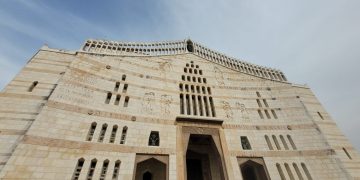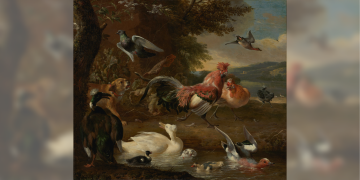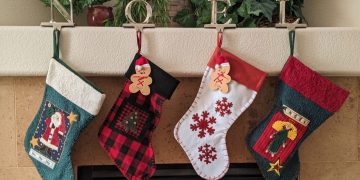For those of us who are part of the international church family in Hong Kong, you might find yourself singing songs and hymns written by North Americans while standing next to a recent graduate from Australia. Afterwards, you may be drinking your iced lemon tea at a Cha Chaan Teng with your Filipino and Indonesian friends.
After the resurrection, we got a glimpse of Jesus’ last words to His disciples from the Gospel accounts, the most well known being: “Therefore go and make disciples of all nations, baptizing them in the name of the Father and of the Son and of the Holy Spirit, and teaching them to obey everything I have commanded you. And surely I am with you always, to the very end of the age. (Matthew 28.19)”
The reason we can (and should) celebrate and praise God for having fellowship with people from different cultures is because of someone’s obedience to Jesus’ command “to make disciples of all nations”. Regardless of our culture and the languages we speak, we can all trace our spiritual heritage back to the first few people who listened and responded to this command.
The reason we can (and should) celebrate and praise God for having fellowship with people from different cultures is because of someone’s obedience to Jesus’ command “to make disciples of all nations”. Regardless of our culture and the languages we speak, we can all trace our spiritual heritage back to the first few people who listened and responded to this command.
At the same time, it doesn’t take an intercultural competence training session from your HR department to point out that differences create tension and drama. This is true for our communities and churches, and it is true for the first group of Jesus’ followers.
Unlike international churches, being all Jewish, the twelve disciples lived in the same world and shared the same culture. But initially, their perspectives and ways of living could not be more different.
Matthew was fine with being in a working partnership with the Romans as a tax collector (due to the nature of the occupation, tax collectors were often seen as traitors and ostracized by their own communities), while the authors of the Gospels labeled one of the twelve, Simon, as a Zealot, possibly referring to his nationalist zeal and hatred of Rome.
Just like the first group of followers of Christ, He has called people with different social statuses, cultural experiences, and political affiliations to follow and worship Him.
We might be able to get along with those who have different preferences for their coffee. But, maybe not so when we find out that they don’t share some of our deeply-held values, be it political, theological, or ethical.
When differences are celebrated, it is beautiful. But when we identify others’ differences as a threat and make judgments on their character, maturity, and devotion to God, we all suffer.
On a smaller scale, we quickly disregard those who prefer a different style of worship or how a small group should run. We feel superior or inferior merely because of our educational upbringing and the number on our paycheque.
In the past two thousand years, some believers have used violence and shame against those who also profess to be Christian, but don’t share the same culture or skin color. Some have waged wars (literally) against one another because of theological differences.
When we look at the church, it seems that we are still far from Jesus’ prayer that His disciples and all His followers “may become perfectly one” (John 17.21), despite their differences.
One particular scene from the Chosen series (a crowdfunded TV show based on the life of Jesus and His followers) brilliantly encapsulated the messiness of the first community of Jesus’ followers.
As Jesus and His disciples were ministering in Galilee, Matthew was called to follow the traveling Rabbi. Peter was furious and confronted Jesus about His decision to invite Matthew into the fellowship (Remember? Tax collectors get a bad rap, especially if you are Jewish). In the show, Peter’s fishing business also suffered under oppressive taxation.
Jesus’ response to Peter? “Get used to different.”
Like Peter and Matthew we are all called by the same God. As we walk with Jesus and share coffee with one another, we can learn to grow in loving our neighbors who think, talk and live differently from us. We are to be one in our differences.
Like Peter and Matthew we are all called by the same God. As we walk with Jesus and share coffee with one another, we can learn to grow in loving our neighbors who think, talk and live differently from us. We are to be one in our differences.
In Part 2, we will explore how we can get along and love our neighbor in our differences.































































